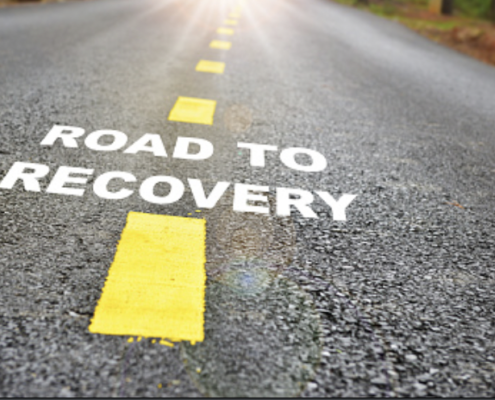The Road to Recovery
Welcome to my blog post. My name is Dara Fields. I am an associate professional clinical counselor at Family Dynamics. Today I would like to share one of my own stories about addiction.
A Recovery Story
The first day of my addictions class started off with the announcement that I was to give up an enjoyed substance for the next 30 days. I was curious and worried about my upcoming goodbye to my favorite substance. The teacher said to ask “What is going on emotionally when I don’t have the substance?” It was going to be a tough few months. My preferred substances were sugar and coffee, so I decided to stop both of them. Fresh coffee in the morning with cream and sugar is one of the more enjoyable events of the day for me.
Faithfully, I noticed my feelings three times a day (as was instructed) and documented the events surrounding my cravings. In the process, I found a clear correlation between my emotional wellness and my sugar cravings in particular. I grudgingly started to notice what I felt when I didn’t have my coffee or sugar. In the mornings, I would feel more tired and sluggish. I asked myself what I wanted relationally from myself, others, or my higher power instead of from that fragrant donut or coffee. I wanted comfort and connection. Sugar and coffee were replacing a relational need for me.
The teacher told me to notice the lies that I was believing when I craved my substance. I was to replace these thoughts with what was true. In doing so, I found that I wrongly believed sugar could help me feel comforted. It was clear I was to replace the lie with the truth and bring my relational needs to safe friends instead.
Now I can happily say that I am a recovering sugar/coffee addict. I still crave these at times. I choose to work on my recovery process when this happens.
Help in Your Recovery
I hope you can see that addictions are something we can all struggle with on some level. Certain people are addicted to physical substances such as alcohol, illicit drugs, or prescription drugs. Other people may be addicted to food, a person, sex, porn, working too much, etc. Addictions are often a way to avoid unwanted emotions that can feel overwhelming. An unhealthy addiction can be an unhelpful way to solve your problems in the long run.
Part of recovering from addictions is first identifying the situation surrounding the craving and what you are thinking and feeling when you have a craving. Secondly, you will ask yourself what you want relationally from yourself, others, or your higher power instead of using a substance. Thirdly, ask yourself if you are believing any lies, and replace them with what is true. Fourth, you ask yourself how you will get your needs met in a healthier way and practice giving yourself want you want instead of the addictive substance.
The Change Process
There are many other factors involved in recovery from addictions, but the first step is to notice and accept that you have an addiction and that it is a problem. Then, you remove the judgment off yourself and ask for help. Lastly, you pick a more helpful way.
Often, it can be hard to stop addiction by yourself, as willpower alone is often not strong enough to stop. For this reason, those in recovery will have a support network of people (both mentors and peers) in their life. How are you doing in your recovery?
Family Dynamics partners with an addiction recovery program called Visions of the Cross (VOTC). VOTC has an inpatient and outpatient program for those struggling with addictions. To visit their website: Click here.
Family Dynamics offers counseling services to address the mental health and relational concerns of those struggling with addiction. We work to address the mental health components that are often occurring at the same time as an addiction. To request an appointment for therapy with Family Dynamics please sign up here.
Author: Dara Fields, APCC
Family Dynamics Resource Center
Associate Professional Clinical Counselor (APCC)

